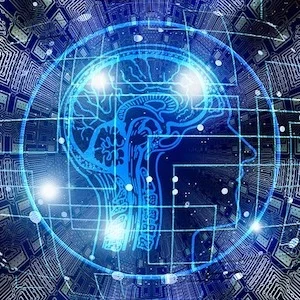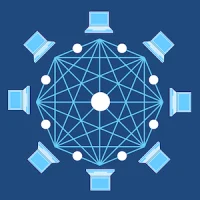While the New Year is upon us, there are certain things that will continue to play an increasing role in healthcare such as artificial intelligence (AI), telemedicine, and cloud computing.
Healthcare is witnessing an explosion in the amount of data generated from patient records (EHRs), mHealth devices, and research studies, among others. All this information needs to be stored securely and accessed easily by authorised users (e.g., doctors and patients).
You might also like: The long road to fostering patient trust in AI
"There's an enormous amount of data and it's a problem for us to keep track of and that's why I think the cloud is going to come in," says Dr. Toby Cosgrove, an executive advisor too Google Cloud healthcare team. "As the data goes to the cloud all the major cloud providers have come to an agreement that they will share unidentified information."
This means that doctors and researchers will be able to mine or scrutinise data to discover trends, and solve problems without risking someone's privacy.
"So now you can have huge data sets that you can begin to analyse, and now that's where AI and machine learning comes in," explains Dr. Cosgrove, the former CEO of the Cleveland Clinic.
Data analytics enhanced by AI techniques, the doctor says, can potentially help in ways such as prescribing the right hypertensive medication, which varies from person to person, by looking at how a certain dosage affects a large number of people with similar characteristics.
AI-based innovations in data management could also cut down time for drug trials, and bring medicines to the market more rapidly, according to Dr. Cosgrove.
For 2019, he believes that telehealth technology will become more ubiquitous. While the technology has been in use for years now, he says many people still are not aware of its benefits. Telehealth technology connects patients to healthcare services through videoconferencing, remote monitoring, and electronic consults. For instance, instead of going to a doctor's physical office, a patient can video-conference a doctor through their cell phone or tablet. This saves a trip to the doctor's office and saves time getting the medicine prescribed and sent to the pharmacy. Telemedicine is particularly beneficial to people who live far away from a doctor or specialist, or for folks who require constant monitoring without having to stay in a hospital.
As Dr. Cosgrove notes, "Kaiser is seeing over 50% of their patients distantly." Remote monitoring of patients is becoming more common with the increasing use of mHealth tools such as smart watches, sensors and other wearables for tracking some vital signs, sleep patterns and physical activity.
Source: CNBC
Image credit: Pixabay










